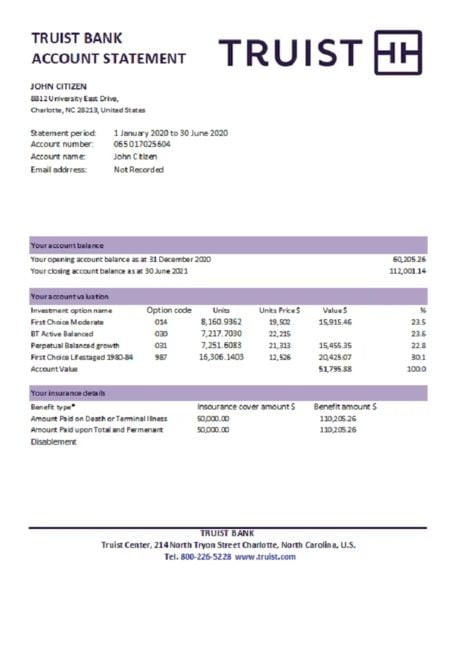Are you struggling to secure the financing your business needs? Your business credit score could be the culprit. 😕 Many entrepreneurs don’t realize that their company’s creditworthiness is just as crucial as their personal credit score. But here’s the good news: you might already have a powerful tool to boost your business credit right at your fingertips – your bank statements! 💼💰
Imagine walking into a lender’s office with confidence, knowing that your business’s financial history speaks volumes about your reliability. By leveraging your bank statements effectively, you can paint a compelling picture of your company’s fiscal responsibility and growth potential. It’s time to unlock the hidden potential in those monthly reports and transform them into a key that opens doors to better financing options and business opportunities.
In this blog post, we’ll dive into the world of business credit and explore how your bank statements can become your secret weapon for improving your score. We’ll cover the basics of business credit, contrast it with personal credit, and provide actionable steps to elevate your company’s creditworthiness. Get ready to discover how you can build a stronger financial foundation for your business, starting with the documents you already have on hand!
What is business credit and why does it matter?
Understanding Business Credit
Business credit is a measure of a company’s creditworthiness, reflecting its ability to repay debts and manage financial obligations. Unlike personal credit, which is tied to an individual, business credit is associated with a company’s EIN (Employer Identification Number).
Importance of Business Credit
-
Access to Financing:
-
Easier loan approvals
-
Better interest rates
-
Higher credit limits
-
-
Business Growth Opportunities:
-
Ability to secure larger contracts
-
Improved negotiating power with suppliers
-
-
Separation of Personal and Business Finances:
-
Protects personal assets
-
Enhances professional image
-
Key Components of Business Credit
| Component | Description | Impact |
|---|---|---|
| Payment History | Record of on-time payments | High |
| Credit Utilization | Amount of available credit used | Medium |
| Length of Credit History | Time business has had credit accounts | Medium |
| Public Records | Bankruptcies, liens, judgments | High |
Benefits of a Strong Business Credit Score
-
Lower insurance premiums
-
Easier approval for business leases
-
Increased credibility with potential partners and clients
A robust business credit profile is essential for long-term success and financial stability. It opens doors to growth opportunities and provides a financial cushion during challenging times. By understanding and actively managing your business credit, you position your company for sustainable growth and resilience in the competitive business landscape.
How to use bank statements to demonstrate creditworthiness?

Bank statements are powerful tools for improving your business credit score. They provide a clear picture of your financial health, showing consistent income, responsible spending, and timely bill payments. By presenting these statements to lenders or credit bureaus, you demonstrate your business’s reliability and creditworthiness, potentially leading to better credit terms and a higher credit score.
Personal credit vs. business credit
Understanding the Difference
Personal credit and business credit are distinct entities, each serving different purposes and impacting your financial life in unique ways. Let’s explore the key differences:
| Aspect | Personal Credit | Business Credit |
|---|---|---|
| Linked to | Individual’s SSN | Business EIN |
| Credit Reporting Agencies | Equifax, Experian, TransUnion | Dun & Bradstreet, Equifax Business, Experian Business |
| Credit Score Range | 300-850 (FICO) | 0-100 (Paydex) |
| Liability | Individual is responsible | Business entity is responsible |
| Impact on Personal Finances | Direct impact | Limited impact |
Separating Personal and Business Credit
Separating your personal and business credit is crucial for several reasons:
-
Liability protection
-
Increased borrowing power
-
Better terms for business loans
-
Protection of personal assets
To effectively separate your credit:
-
Incorporate your business or form an LLC
-
Obtain an Employer Identification Number (EIN)
-
Open a business bank account
-
Apply for business credit cards
Building Both Credit Profiles
While it’s important to separate personal and business credit, building both profiles simultaneously can be beneficial:
-
Use personal credit to kickstart business credit
-
Maintain good personal credit for better business loan terms
-
Build business credit to protect personal credit from business-related debt
Now that we understand the differences between personal and business credit, let’s explore specific strategies to improve your business credit score.
How to improve your business credit score
Update your information with business credit bureaus
Keeping your business information up-to-date with credit bureaus is crucial for maintaining an accurate credit score. Regularly review and update your:
-
Business name
-
Address
-
Phone number
-
Industry classification
This ensures that all your positive credit activities are correctly attributed to your business.
Pay your bills on time
Timely payments are the cornerstone of a good credit score. Set up automatic payments or reminders to ensure you never miss a due date. Consider the following strategies:
-
Schedule payments a few days before the due date
-
Use online banking for instant transfers
-
Set up email or text alerts for upcoming bills
Maintain a low credit utilization ratio
Your credit utilization ratio is the amount of credit you’re using compared to your total available credit. Aim to keep this ratio below 30% for optimal credit health.
| Credit Utilization | Impact on Credit Score |
|---|---|
| 0-30% | Positive |
| 31-50% | Neutral |
| 51-100% | Negative |
Open a new business credit card
A new business credit card can increase your available credit and potentially lower your utilization ratio. However, be cautious:
-
Research card options thoroughly
-
Choose a card with benefits suited to your business
-
Use the card responsibly to build positive payment history
Add trade references to your credit file
Trade references from suppliers or vendors can boost your creditworthiness. Ask your reliable business partners to report your payment history to credit bureaus. This additional information can strengthen your credit profile and demonstrate your business’s reliability to potential lenders or partners.
Building better business credit
Ready to grow your business?
Growing your business requires careful planning and strategic financial management. One crucial aspect of this growth is building better business credit. Here are some key steps to consider:
-
Establish separate business accounts
-
Pay bills on time
-
Monitor your credit report regularly
-
Maintain a good debt-to-income ratio
| Action | Impact on Business Credit |
|---|---|
| Pay bills early | Positive |
| Use credit responsibly | Positive |
| Keep credit utilization low | Positive |
| Miss payments | Negative |
| Max out credit limits | Negative |
Related Articles
To further enhance your understanding of business credit and financial management, consider exploring these related topics:
-
Understanding business credit scores
-
Strategies for efficient cash flow management
-
Importance of financial forecasting for business growth
-
Leveraging business credit for expansion opportunities
How to manage invoices when clients don’t pay right away
Managing cash flow can be challenging when clients delay payments. Here are some effective strategies:
-
Implement clear payment terms
-
Offer early payment discounts
-
Use invoice factoring services
-
Set up automated reminders
Alleviate Financial Stress with a Business Line of Credit
A business line of credit can provide flexibility and peace of mind. Benefits include:
-
Access to funds as needed
-
Interest charged only on used amount
-
Potential for lower interest rates than credit cards
-
Helps build business credit when used responsibly
How to get certified as an LGBTQIA+ owned business
Certification can open doors to new opportunities. Steps typically involve:
-
Gathering required documentation
-
Submitting application to certifying organizations
-
Undergoing review process
-
Maintaining certification through annual renewals
4 Things to Consider When Choosing a Bank For Your Small Business
Selecting the right bank is crucial for your business’s financial health. Consider:
-
Fee structures and minimum balance requirements
-
Online and mobile banking capabilities
-
Availability of business-specific products and services
-
Customer support and accessibility
Building a strong business credit score is essential for accessing better financing options and growing your company. Bank statements play a crucial role in demonstrating your business’s financial health and creditworthiness to lenders and creditors. By consistently maintaining positive cash flow, making timely payments, and separating personal and business finances, you can significantly improve your business credit score over time.
Remember that improving your business credit is an ongoing process that requires dedication and attention to detail. Regularly review your credit reports, address any discrepancies promptly, and continue to implement responsible financial practices. By doing so, you’ll position your business for greater financial opportunities and long-term success in the competitive business landscape.




